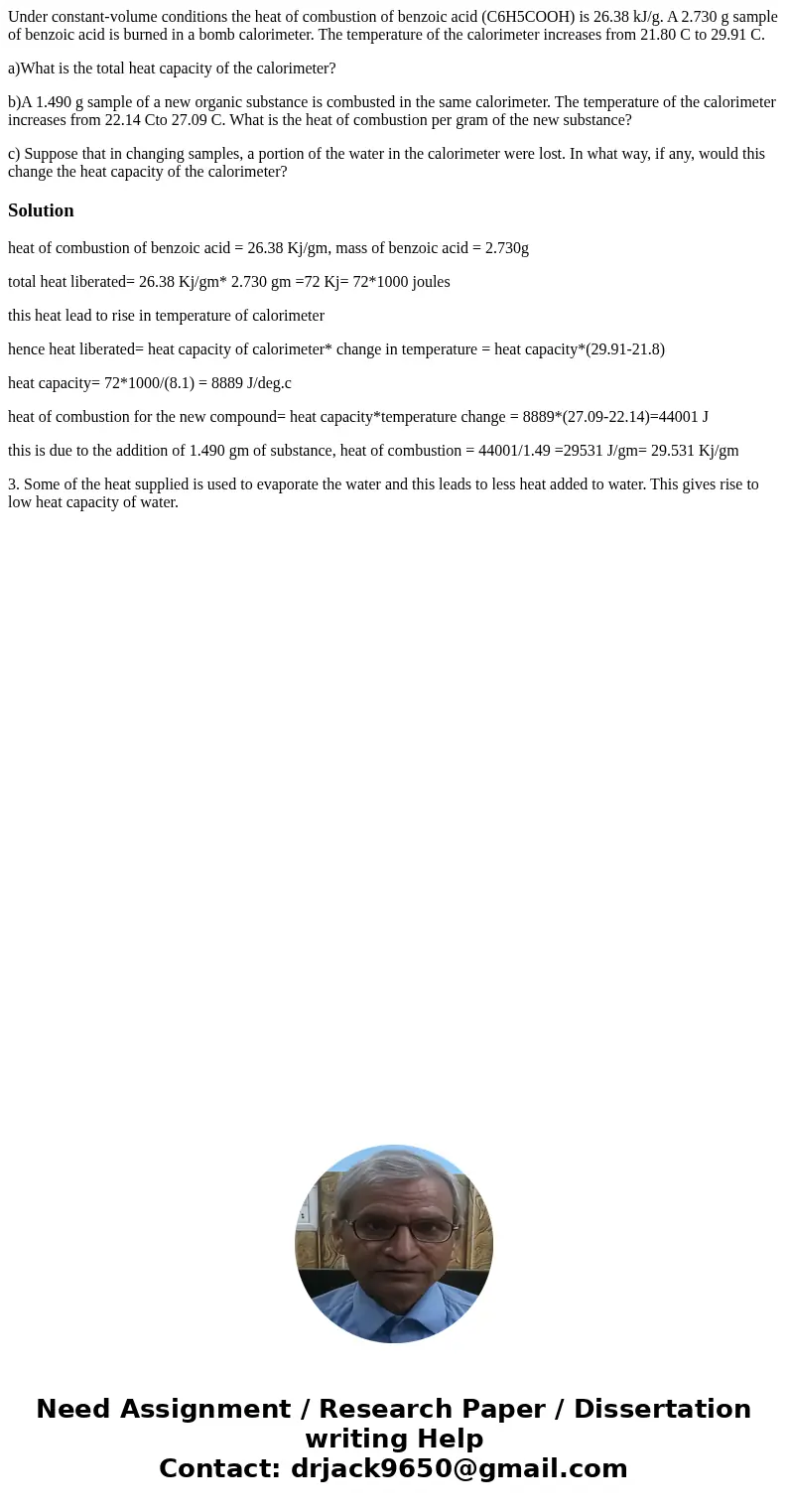Under constantvolume conditions the heat of combustion of be
Under constant-volume conditions the heat of combustion of benzoic acid (C6H5COOH) is 26.38 kJ/g. A 2.730 g sample of benzoic acid is burned in a bomb calorimeter. The temperature of the calorimeter increases from 21.80 C to 29.91 C.
a)What is the total heat capacity of the calorimeter?
b)A 1.490 g sample of a new organic substance is combusted in the same calorimeter. The temperature of the calorimeter increases from 22.14 Cto 27.09 C. What is the heat of combustion per gram of the new substance?
c) Suppose that in changing samples, a portion of the water in the calorimeter were lost. In what way, if any, would this change the heat capacity of the calorimeter?
Solution
heat of combustion of benzoic acid = 26.38 Kj/gm, mass of benzoic acid = 2.730g
total heat liberated= 26.38 Kj/gm* 2.730 gm =72 Kj= 72*1000 joules
this heat lead to rise in temperature of calorimeter
hence heat liberated= heat capacity of calorimeter* change in temperature = heat capacity*(29.91-21.8)
heat capacity= 72*1000/(8.1) = 8889 J/deg.c
heat of combustion for the new compound= heat capacity*temperature change = 8889*(27.09-22.14)=44001 J
this is due to the addition of 1.490 gm of substance, heat of combustion = 44001/1.49 =29531 J/gm= 29.531 Kj/gm
3. Some of the heat supplied is used to evaporate the water and this leads to less heat added to water. This gives rise to low heat capacity of water.

 Homework Sourse
Homework Sourse